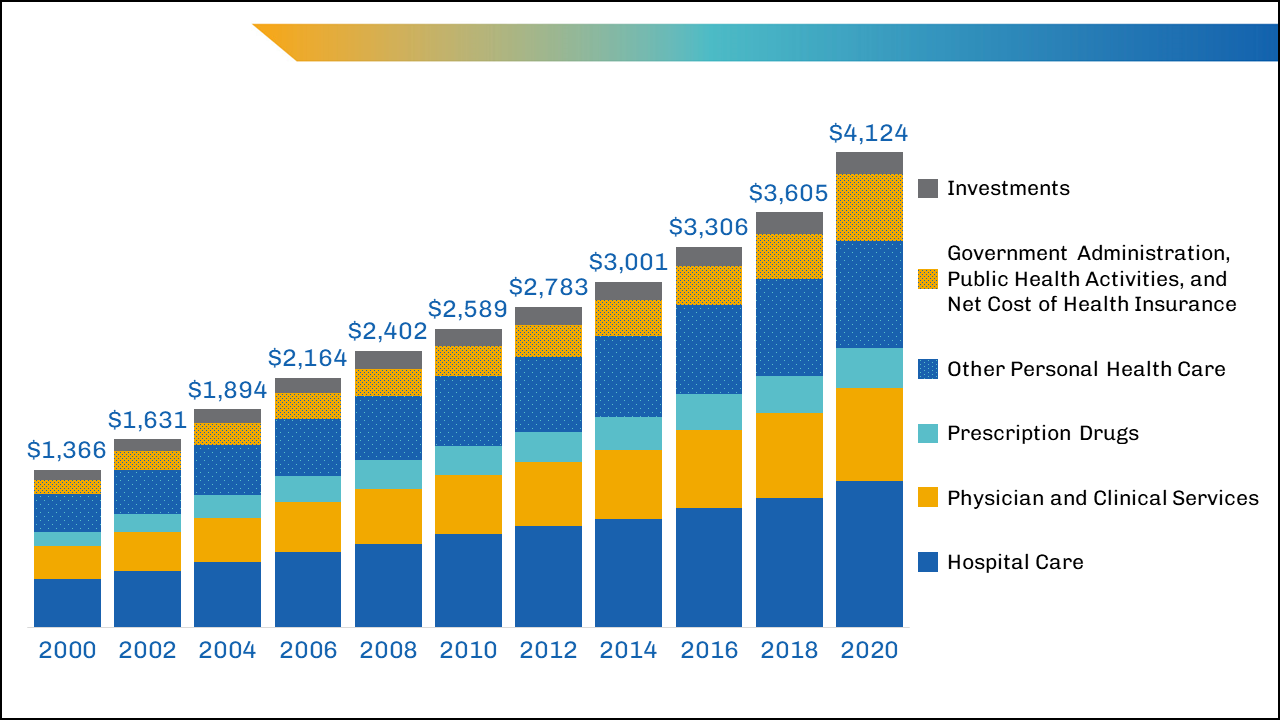Top Healthcare RCM Strategies for Better Financial Efficiency
Recognizing the Duty of Healthcare RCM in Enhancing Monetary Efficiency and Person Satisfaction
Navigating the ins and outs of Health care Profits Cycle Monitoring (RCM) is crucial for achieving optimum economic efficiency while concurrently elevating client complete satisfaction. RCM's capability to improve billing, guarantee precise coding, and expedite claims refining stands as a keystone of modern-day health care operations. However, the nuanced interplay in between these components warrants a better evaluation to fully value their influence on both health care suppliers and clients. As we explore the transformative potential of RCM, inquiries concerning its critical application and future developments beckon, encouraging understandings that could redefine industry criteria and individual experiences alike.

Key Elements of RCM
In the complicated landscape of health care, Earnings Cycle Monitoring (RCM) is crucial in ensuring financial stability and operational efficiency. A detailed RCM system incorporates several vital elements, each playing an important function in the smooth management of a healthcare carrier's financial procedures. Individual registration and eligibility confirmation are foundational steps, making certain that exact individual info is captured and insurance policy coverage is verified prior to services are provided. This minimizes the risk of case denials and accelerates the repayment process.

Cost capture is one more vital component, involving the exact recording of services given to clients. It ensures that all billable solutions are represented, therefore optimizing profits possibility. Simultaneously, clinical coding translates patient encounters right into standardized codes, which are essential for billing and regulatory compliance.
Claims entry and management comply with, entailing the preparation and submission of insurance claims to payers. This procedure calls for meticulous interest to information to decrease errors and avoid delays. Rejection management is a proactive method to resolve and deal with refuted claims, securing earnings streams.
Lastly, payment posting and individual collections finish the cycle, making certain repayments are properly taped and superior equilibriums are sought. With each other, these elements develop a durable framework that supports the operational and economic wellness of medical care companies.
Impact on Financial Efficiency
Effective Profits Cycle Administration (RCM) substantially influences a healthcare organization's financial efficiency by enhancing capital and decreasing revenue leak. RCM incorporates the thorough invoicing and collection processes that ensure doctor efficiently handle their economic deals from individual registration to last repayment. By improving these processes, companies can reduce denied cases, speed up payment cycles, and boost general financial wellness.
Financial efficiency is enhanced via careful administration of billing treatments, which includes precise coding and timely entry of insurance claims. This minimizes the probability of insurance claim denials and rejections, which can dramatically impede revenue circulation if not addressed without delay. In addition, incorporating sophisticated technology services facilitates real-time monitoring of insurance claims and economic metrics, supplying healthcare managers with the devices needed to make informed calculated decisions.

Enhancing Person Complete Satisfaction
While optimizing financial performance is an essential goal of Earnings Cycle Management (RCM), it also plays a pivotal role in improving person satisfaction. By decreasing management problems, RCM permits healthcare carriers to focus a lot more on person treatment, which directly improves individual satisfaction.

RCM likewise enhances patient complete satisfaction through effective interaction. By preserving an extensive data source of person info, RCM helps with improved interaction between patients and medical care providers, making certain individuals feel notified and valued.
Techniques for Reliable RCM
Attaining effective Earnings Cycle Management (RCM) needs health care companies to apply a collection of strategic practices that ensure economic stability and functional efficiency. One vital strategy is the adoption of technology-driven options, such as incorporated software platforms that enhance payment processes, decrease errors, and improve data precision. These systems enable real-time tracking of monetary metrics, permitting punctual recognition and rectification of inefficiencies.
One more method is the standardization of procedures throughout the earnings cycle. Healthcare RCM. This entails developing consistent policies for client registration, insurance coverage confirmation, and asserts handling. By making certain that all staff comply with these standards, organizations can reduce inconsistencies and accelerate settlement collections
Team training and growth likewise play an essential function in efficient RCM. Trained workers can successfully browse intricate invoicing procedures and regulations, decreasing denials and improving capital. Regular updates on plan adjustments and best practices help maintain a skilled and well-informed workforce.
Future Trends in RCM
As health care organizations enhance their Revenue Cycle Management (RCM) strategies with innovation and standardized processes, focus is currently transforming in the direction of the future patterns shaping this vital area. One substantial fad is the combination of expert system (AI) and artificial intelligence to automate complex tasks, such as claims processing and anticipating analytics. These modern technologies are anticipated to decrease mistakes, accelerate purchase times, and give data-driven insights for better decision-making.
In addition, the shift towards value-based treatment proceeds to affect RCM practices - Healthcare RCM. Doctor are anticipated to progressively focus on client outcomes and contentment, necessitating RCM systems that can fit why not try this out new reimbursement designs. This shift will certainly need even more detailed data collection and evaluation to effectively report and gauge on efficiency metrics
Interoperability is another emerging priority, as seamless data exchange between diverse systems ends up being essential. Enhanced interoperability will certainly assist in even more exact person details sharing, reducing administrative burdens and improving the patient experience.
Conclusion
Health Care Income Cycle Administration (RCM) dramatically affects both economic efficiency and individual contentment by maximizing payment procedures, making certain specific coding, and making it possible for timely insurance claims submission. Effective RCM learn this here now reduces revenue leak and increases cash money circulation, decreasing claim denials and expediting payments. This efficiency cultivates trust fund and fulfillment among clients. RCM systems likewise help with better interaction and versatile repayment options, developing a patient-centered experience. Future RCM patterns will likely concentrate on further integrating technology to boost these advantages.
Browsing the complexities of Health care Income Cycle Administration (RCM) is necessary for attaining optimum economic performance while simultaneously elevating client complete satisfaction. RCM encompasses the thorough payment and collection processes that ensure healthcare service providers successfully manage their monetary purchases from client registration to final payment. By lowering administrative concerns, RCM allows health care service providers to concentrate a lot more on client treatment, which directly improves individual contentment.
By keeping a sites detailed data source of person details, RCM facilitates enhanced interaction in between patients and health care service providers, ensuring people feel notified and valued.Health Care Income Cycle Management (RCM) considerably influences both monetary performance and client complete satisfaction by enhancing invoicing processes, guaranteeing accurate coding, and enabling prompt claims entry.